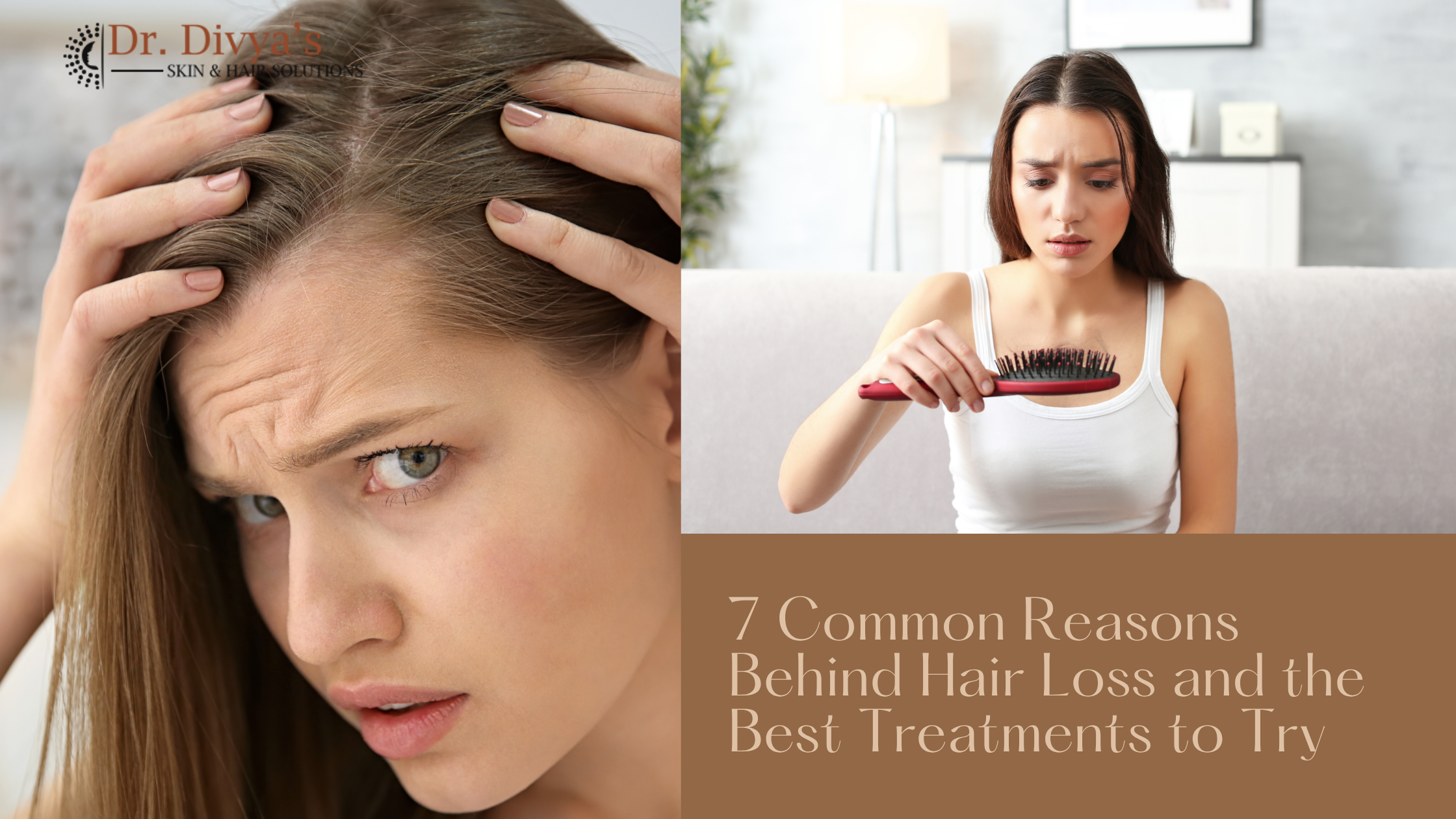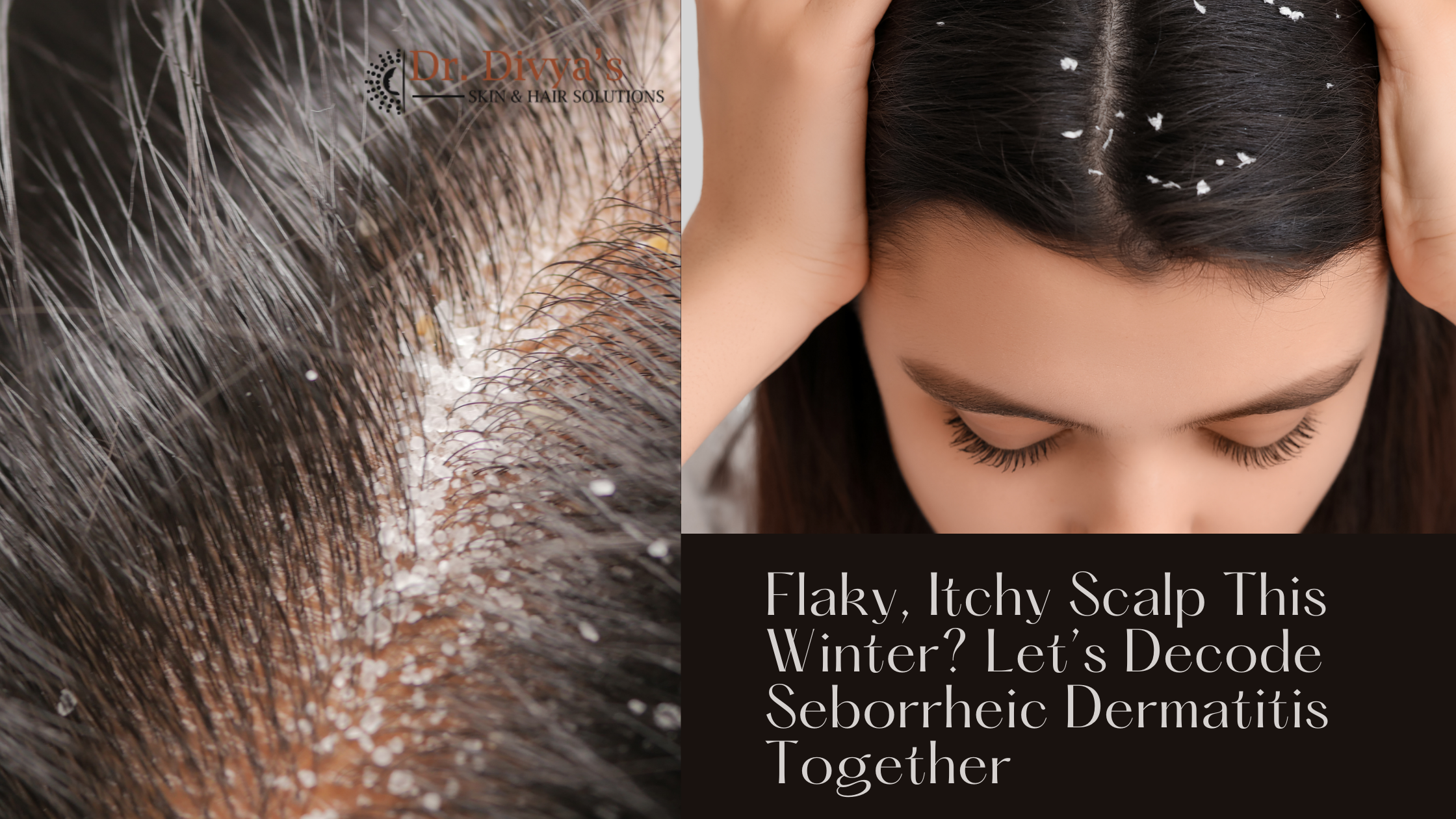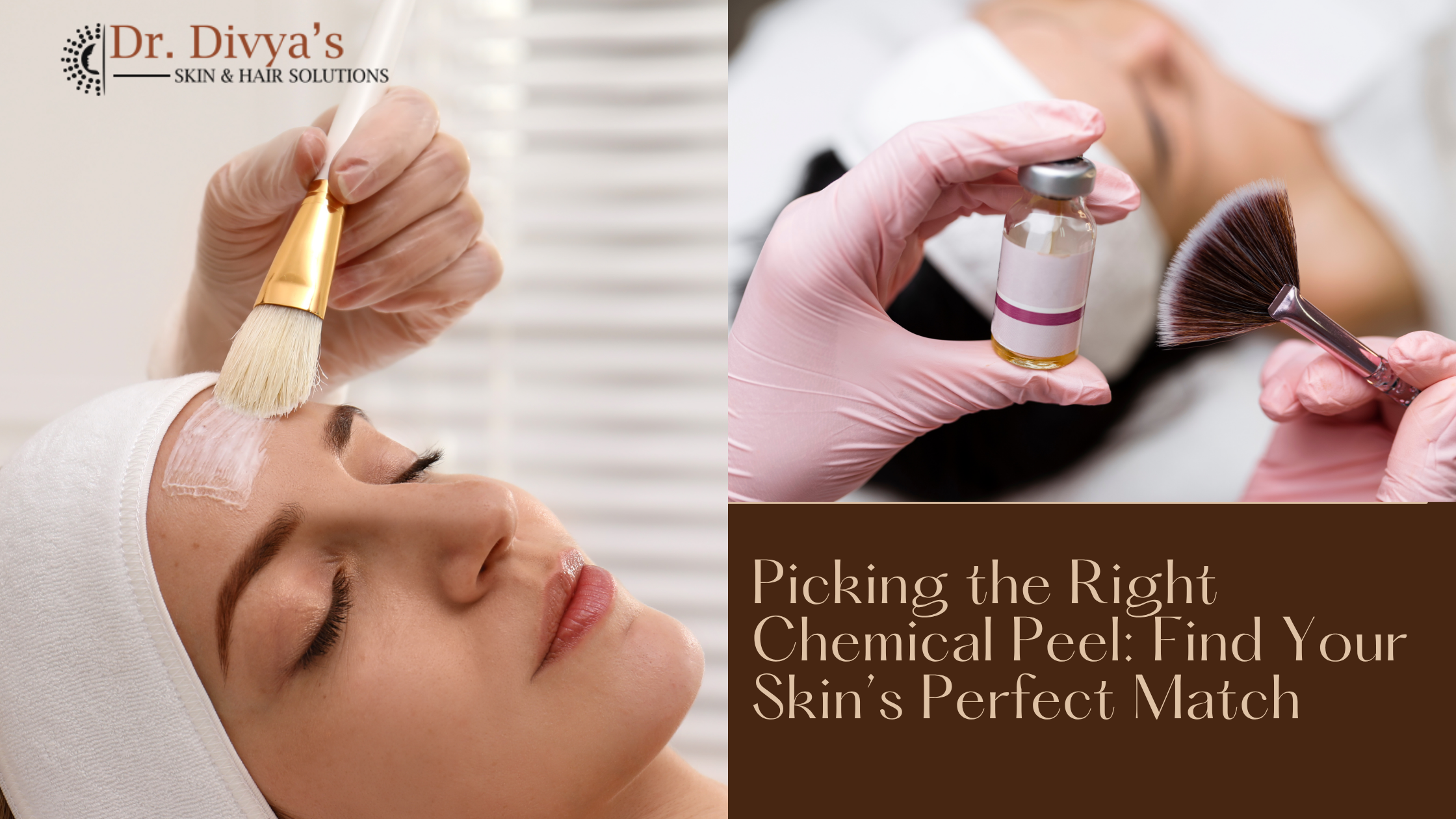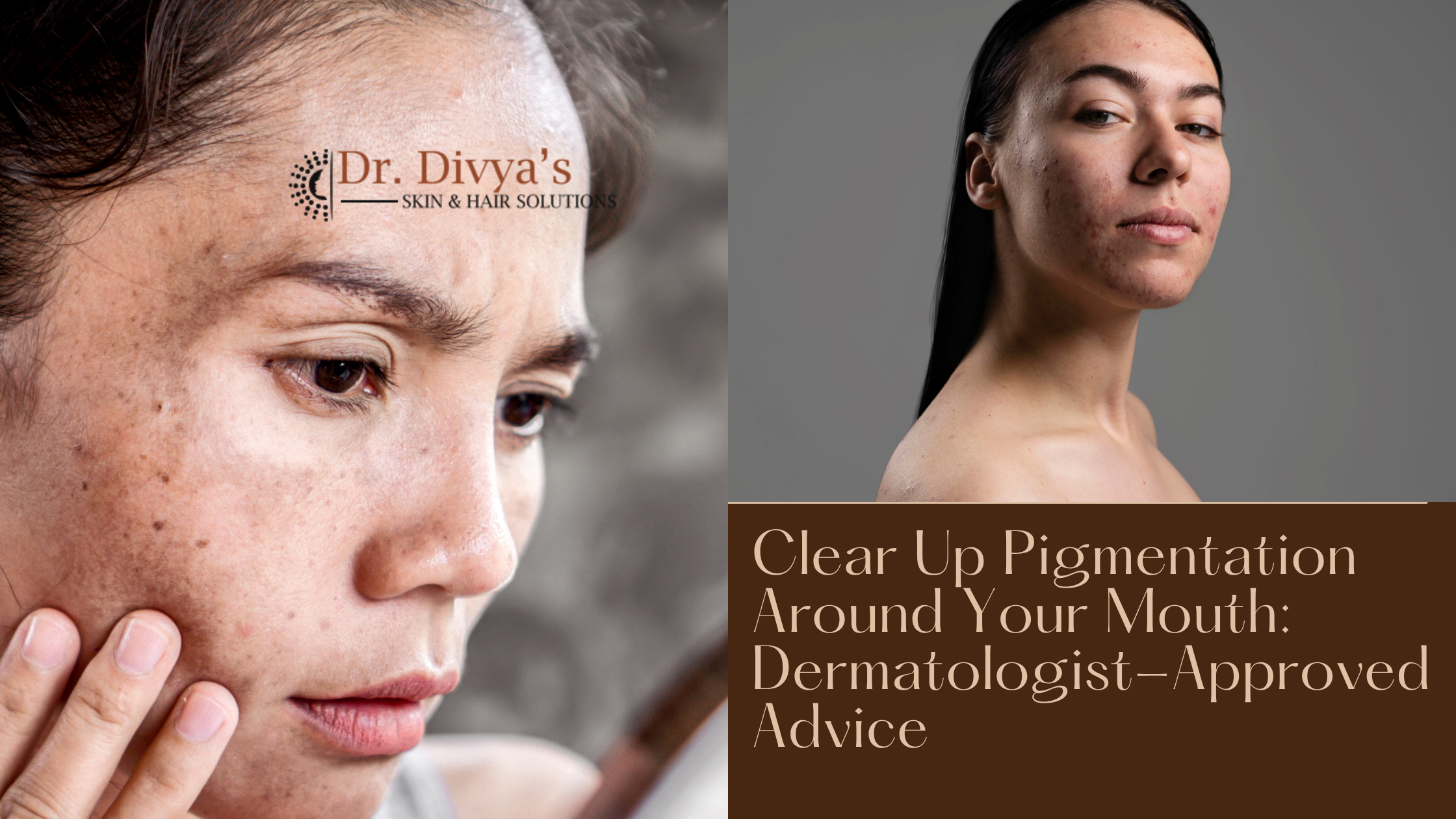Posted date on Aug 05, 2025
Worried about the increasing hair strands on your pillow or in the shower drain? You're not alone. Hair loss has become a common struggle for many—whether it's due to daily stress, unhealthy habits, or something deeper. And while it’s normal to shed a few hairs every day, excessive hair fall can be frustrating, especially when you're not sure what’s causing it.
The good news? Most causes of hair loss are manageable once you understand them. In this blog, we’ll break down 7 of the most common reasons behind hair fall and guide you through the best treatments—both medical and natural—to help restore your hair health and confidence.
1. Stress and Emotional Strain
Why it happens:
When you're under constant stress—emotional or physical—your body can push hair follicles into a resting phase, leading to sudden hair fall. This condition is known as telogen effluvium.
Best treatment to try:
Practice stress-reducing activities like yoga, deep breathing, meditation, or regular walks. A balanced routine that supports mental health can significantly reduce stress-induced hair loss.
2. Nutritional Deficiencies
Why it happens:
Hair needs proper nourishment to grow. Deficiencies in iron, vitamin D, protein, or B-complex vitamins can cause the hair shaft to weaken and fall out.
Best treatment to try:
Focus on a nutrient-rich diet. Include foods like eggs, leafy greens, nuts, seeds, legumes, and fruits. You can also take supplements like biotin or iron after consulting a doctor.
3. Hormonal Imbalances
Why it happens:
Conditions like PCOS, thyroid issues, pregnancy, or menopause can lead to hormonal fluctuations, which in turn affect the hair growth cycle.
Best treatment to try:
Get your hormone levels tested and consult a healthcare provider for proper management..
4. Genetics
Why it happens:
Sometimes, hair loss runs in the family. Hereditary hair thinning, or androgenic alopecia, is a common condition that causes gradual hair loss, especially in the crown or hairline area.
Best treatment to try:
Minoxidil is an FDA-approved topical solution that works well for genetic hair loss. Low-level laser therapy (LLLT) and PRP (Platelet-Rich Plasma) treatments are also showing promising results.
5. Scalp Issues (Dandruff or Infections)
Why it happens:
A flaky, itchy, or inflamed scalp can clog hair follicles and disrupt healthy hair growth. Conditions like dandruff, seborrheic dermatitis, or fungal infections can worsen hair fall.
Best treatment to try:
Use anti-dandruff shampoos with ketoconazole or zinc pyrithione.
6. Overstyling and Harsh Treatments
Why it happens:
Frequent use of heat styling tools, tight hairstyles, or chemical treatments like colouring and rebonding can damage your hair shaft and lead to breakage.
Best treatment to try:
Give your hair a break from styling. Use heat protectant sprays, switch to mild, sulphate-free shampoos
7. Lack of Proper Hair Care Routine
Why it happens:
Using harsh shampoos, or infrequent washing can weaken your scalp environment, causing buildup and stunted hair growth.
Best treatment to try:
Create a simple and consistent routine wash with gentle products. Avoid combing wet hair and use a wide-toothed comb.
Conclusion:
Hair loss isn’t just a surface-level concern—it’s your body’s way of signaling that something needs attention, whether it’s your diet, stress levels, hormones, or hair care habits. The journey to healthier hair starts with identifying the cause and making consistent, gentle changes that support your scalp and strands.
Whether you're tackling thinning hair, patchy loss, or general shedding, the right combination of lifestyle changes and targeted treatments can make all the difference. Be patient, stay committed, and don’t hesitate to seek professional help when needed—your hair is worth the care.





